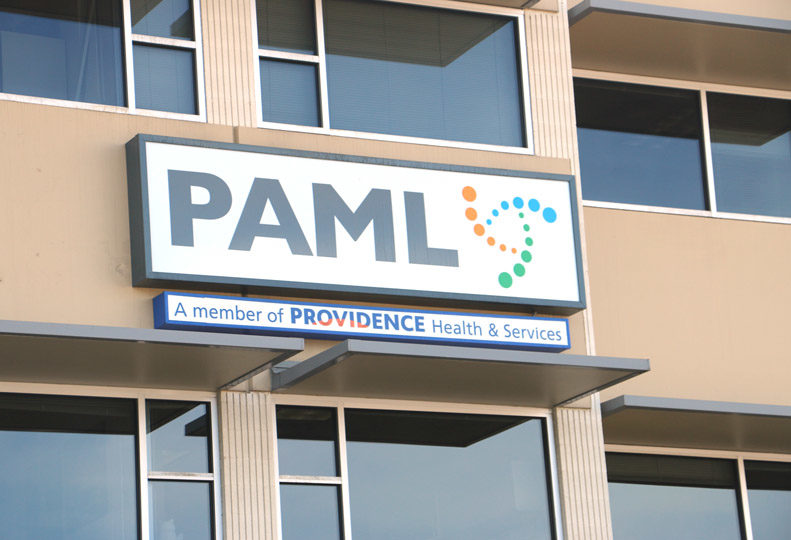PAML test volume grows by 3 percent
Employee count here crested 800 in 2016

Pathology Associates Medical Laboratories LLC, the Spokane-based national reference laboratory, had requisition volume growth of 3 percent in 2016, says Patty Sipes, PAML’s vice president of sales, marketing, and business development.
Though that’s slowed from the prior year’s growth rate of 7 percent, Sipes says PAML’s 3 percent requisition growth rate in 2016 was still in line with the industry average.
Requisition volume refers to a doctor’s order for all the tests for a single patient and not the individual tests. It’s possible for one requisition to include multiple tests.
In 2014, PAML recorded its largest growth rate with an 8.6 percent increase in requisition volume over 2013.
“As we’re a privately held company, we do still have a policy in place restricting the disclosure of volume and revenue numbers,” Sipes says.
Without further elaboration, she says, “We can state that our largest venture, PACLAB (in Seattle), hit a major financial milestone in 2016.”
PAML is a founding member of PACLAB Network Laboratories in Seattle with Providence Health System-Washington, Providence Everett Medical Center, Franciscan Health System, Overlake Hospital Medical Center, Evergreen Healthcare, and Stevens Hospital.
PAML, which will celebrate its 60th anniversary this year, has 200 hospital clients and 15,000 individual physician clients across the U.S., Sipes says.
PAML’s employment numbers increased in 2016 from 2015, according to information it supplied to the Journal for a largest employers list. The company now ranks as the 23rd largest employer in Spokane County with 836 full-time-equivalent employees as of the end of 2016. At the end of 2015, PAML was the county’s 26th largest employer, with 728 full-time equivalent, based on information it provided to the Journal.
Outside of Spokane County, PAML has a total of 1,846 employees, Sipes says.
At the end of last year, she says, PAML introduced a new automated testing line, which she claims is the first of its kind in the U.S. and will allow for faster and improved testing.
“Our laboratory underwent a six-month renovation of its third floor to create space, validate testing, install the equipment, and train laboratory technicians,” Sipes says.
“The new automated line will increase productivity, efficiency, and flexibility within our laboratory, as well as create more streamlined results,” she says.
Indianapolis-based Roche Diagnostics Inc. manufactured the automated line. The new technology operates 250 percent faster than the previous line, Sipes says.
“We’re proud to have been the first in the nation to take the initiative to implement such technology and are looking forward to seeing its impact on our testing capabilities,” she says.
Related Articles




